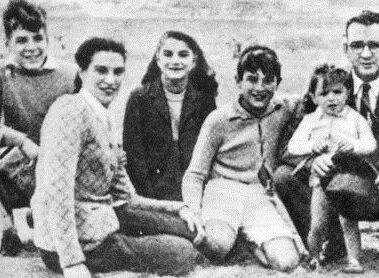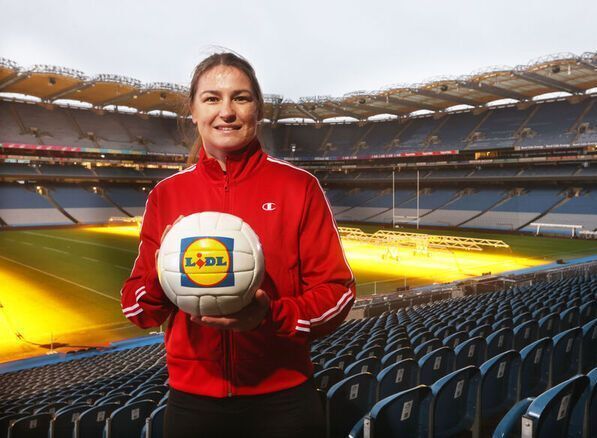Jeremy Massey.
PHOTO: BENN JAE
Page Turner / Edited by Peter McDermott
“More Brendan Behan than Dennis Lehane.”
That’s what the reviewer at the National Public Radio website the other week said about Jeremy Massey’s “The Last Four Days of Paddy Buckley,” though he added that it is, at its heart, a crime novel.
“Highly readable and entertaining, “said Kirkus Reviews, striking a similar tone, “the novel benefits especially from Massey's mostly restrained, deadpan Irish sense of humor.”
And it benefits, too, from some inside professional knowledge. Massey is a third-generation undertaker who worked for years in the family business in Dublin and Paddy Buckley was taught the trade by his father and is employed by Gallagher’s, a much respected funeral home.
Paddy, a grieving widower, is going through a tough time generally and things are about to get worse. The author told us: “Having knocked down and killed the brother of Vincent Cullen (Dublin's crime boss), fuelled by fear, Paddy flees the scene of the accident in the dead of night. The following morning, having gone in to work to appear as normal as possible, Paddy ends up being given the task of making the funeral arrangements with Vincent Cullen. And Cullen doesn't miss a trick.”
Jason Sheehan, that npr.org reviewer, said: “Massey has an eye for black humor and the details of a life fully inhabited. I know stuff about autopsies, embalming and cremation that I didn't before reading this book. And maybe a little something new about grief, too, which is impressive.”
He continued: “I love the way Massey writes. For a first-time novelist, his confidence is remarkable. He's got the natural voice of a storyteller (working in the first-person helps a lot), and feels no need to show off or lard his paragraphs with hyperbole or unnecessary linguistic fireworks. His writing is by no means spare, it's just lush in a way that feels completely unforced.”
Jeremy Massey
Date of birth: March 31, 1970
Place of birth: Dublin.
Spouse: Holli.
Children: Lughnasa, Finnegan, Coco.
Residence: Melbourne.
Published works: “The Last Four Days of Paddy Buckley”
What is your writing routine? Are there ideal conditions?
When I started out writing 20 years ago, I loved finding crusty cafes in Dublin to write in. The sounds of the city and its people lulled me into a creative trance enabling the story to trickle down. But today, it's more of a hermitic activity. I have a little writing hut at the back of my garden where I can crank the music and go a little mad, fully immersed in the world of the story. In terms of routine, I do the lion's share of my writing when my kids are at school or after they've gone to bed, but there's no escape from a story once I've started one. After I've gone to bed myself, I often pick my phone up and write in it if the story continues to crackle, sometimes at three in the morning.
What advice do you have for aspiring writers?
When you find a writer whose work is like magic to you, get under the skin of their narrative and find the secrets to their style. And get into the habit of writing your dreams down. This really helps in finding your own style because it's not something you can take your time with - you have to record the dream before you forget it, so you literally don't have time to be self-conscious about your writing. It also sharpens the mind and memory, because the more you do it, the better you get at remembering them. After just a few weeks, huge segments of dreams can be recalled.
Name three books that are memorable in terms of your reading pleasure.
“When the Nines Roll Over” by David Benioff; “South of No North” by Charles Bukowski; “The Sense of an Ending” by Julian Barnes.
What book are you currently reading?
“The Magus” by John Fowles. I'm not finished it yet but already I know it's a masterpiece.
Is there a book you wish you had written?
I remember reading “Jig” by Campbell Armstrong in 1989, and at the time it stopped traffic for me. I thought it was ingenious in its crafting, and its two principal characters were as rich and charismatic as Brando is on the screen. I don't wish I'd written it, but for the duration of my reading it I could think of little else.
Name a book that you were pleasantly surprised by.
“The Fairy Tales of Hermann Hesse.” In terms of story smarts, Hesse is right up there with Oscar Wilde.
If you could meet one author, living or dead, who would it be?
It would have to be Brendan Behan. For seven years, I lived around the corner from his house in Crumlin, and one of the drivers in the yard I worked in was his next-door neighbor and knew him well. I haven't had a drink in 15 years, but seeing as we're supposing here, I'd love to go on a week-long bender with him, spending half the time in Dublin, the other half in New York.
What book changed your life?
“Post Office” by Charles Bukowski changed the way I looked at literature. After reading that, I got my hands on everything he'd ever published - novels, stories, poems - and devoured them. His voice was intoxicating. It became a lifeline of hope, of friendship, of understanding. And his maxims blew me away. "Endurance is more important than truth" was one that became unforgettable. And his one-line poem, Art. As the spirit wanes, the form appears.
What is your favorite spot in Ireland?
Tourmakeady. It's a tiny village on the west shores of Lough Mask in County Mayo, and it's where my heart beats for.










